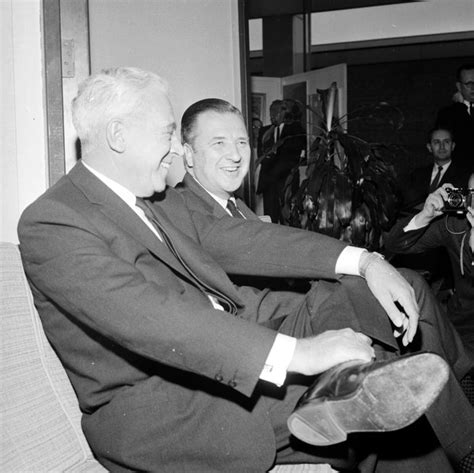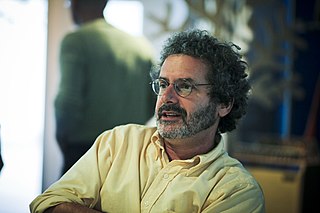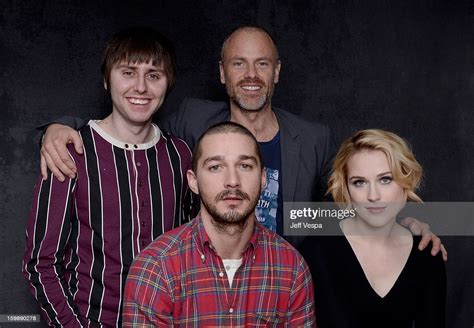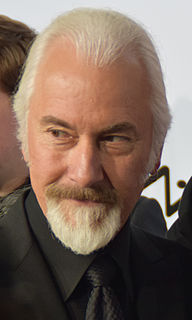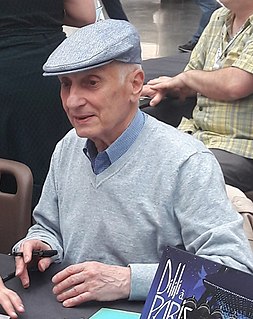A Quote by Kevin Bacon
They took 3-D digital photographs of my entire body. I had to pose stark naked, assuming a kind of Spider-Man position. After a minute, one of the technicians pointed to my genitals and said, Um, we're not getting enough data there ... It wasn't what you think. It turns out that the fancy digital camera doesn't pick up dark areas too well, and they were having trouble because of the hair down there. I actually had to spray on this highlighter stuff. (On having digital photos taken for the invisible man role in the film Hollow Man)
Quote Topics
Actually
After
Areas
Assuming
Because
Body
Camera
Dark
Data
Digital
Down
Enough
Entire
Fancy
Film
Getting
Had
Hair
Having
Hollow
Hollow Man
Invisible
Kind
Man
Minute
Naked
Out
Photographs
Photos
Pick
Pointed
Pose
Position
Role
Said
Spider
Spider-Man
Spray
Stark
Stuff
Taken
Technicians
Think
Too
Took
Trouble
Turns
Um
Up
Well
Were
Related Quotes
If you need to strap a camera to you or get in a small space, then it makes sense to use digital.I do think it is possible to use a digital camera artistically, but it can only be good if you are using film technique. Film has grain, and digital has pixels, and there is not that much of a difference, but digital does not replace the need to create a scene and light it properly and spend time considering the shot.
There's something very satisfying about old cameras because they're ingenious. I mean when you take them apart and actually see, 'Oh, this is how we make photographs,' it's an ingenious thing, but it feels like it's in a way a layman can appreciate, whereas a digital camera, I don't even begin to know what goes into making a digital camera.
Various studios are still shooting on film with digital grain and the DI negatives, it's not ideal. We should really be all film or all digital. But that being said, the old way of graining in the camera, now you can make changes like a painter. It's dangerous because you can ruin the film, you can over-fiddle. We've all seen films and gone 'what the hell is that?'
As far as digital technology has come, there's still one thing that digital cameras won't do: give you perfect color every time. In fact, if they gave us perfect color 50% of the time, that would be incredible, but unfortunately every digital camera (and every scanner that captures traditional photos) sneaks in some kind of color cast in your image. Generally, it's a red cast, but depending on the camera, it could be blue. Either way, you can be pretty sure-there's a cast.
Digital media are biased toward replication and storage. Our digital photos practically upload and post themselves on Facebook, and our most deleted e-mails tend to resurface when we least expect it. Yes, everything you do in the digital realm may as well be broadcast on prime-time television and chiseled on the side of the Parthenon.
My current project was shot on film, and because of that I've spent my entire day removing dust-specks from negatives. You wouldn't have to do that on digital because you don't get dust on the scanner. I say to myself, "Why am I doing this all day?" I could have just bought a digital camera and I wouldn't have to remove dust-specks ever again. But when you move closer to a film image, it has a real truth to it. And I really like that.
The whole switch from film to digital has changed some of the ways I use color and the juxtaposition of light and dark. It's getting better with digital, the separation's gotten better, but I still feel like it's really flatter than film, so I do a lot of screening and subtle textural printing and painting on clothes for film to get it not to look flat.




